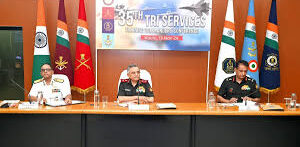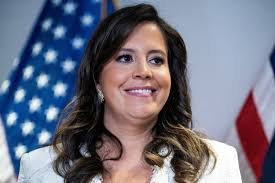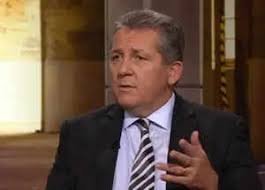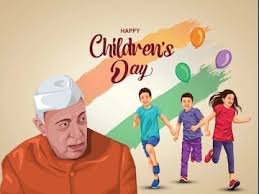Why Children’s Day is Celebrated on 14th November Every Year
Introduction to Children’s Day in India
Children’s Day in India is celebrated on November 14 every year, to honor the birth anniversary of Pandit Jawaharlal Nehru, the first Prime Minister of India. This day is a special occasion dedicated to recognizing the importance of children in society and promoting their rights, welfare, and education. Nehru, affectionately known as “Chacha Nehru,” was a passionate advocate for children’s education and their well-being, making his birthday an ideal occasion for celebrating young people.
Significance of November 14
November 14 is a day to reflect on the contributions of children in the nation’s development. It is a day when schools, communities, and organizations come together to raise awareness about children’s issues, celebrate their achievements, and emphasize the need for quality education. Nehru believed in the power of children to shape the future of the country. His vision was to provide every child with access to education, health care, and a brighter future.
Activities on Children’s Day
On this day, various events and activities take place across the country. Schools organize cultural programs, games, debates, and competitions to encourage children’s creativity and talent. Educational institutions often invite leaders, celebrities, and prominent personalities to interact with children and discuss their rights and aspirations. Additionally, children are given the chance to participate in fun activities, making the day special for them.
Nehru’s Contribution to Children’s Welfare
Pandit Nehru’s deep love and concern for children are well known. He believed that the future of the nation rested in the hands of its young population. Nehru’s efforts towards improving education for children were instrumental in shaping India’s educational policies. His advocacy for universal education, the establishment of the Children’s Film Society, and his focus on child welfare earned him the lasting love and respect of the younger generation.
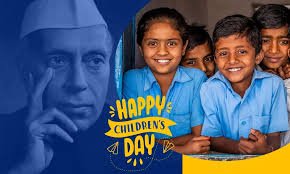
Why This News is Important
Celebrating Children’s Rights and Welfare
Children’s Day is not just about celebrating Pandit Nehru’s legacy but also about raising awareness of the rights and welfare of children in India. It serves as a reminder of the government and society’s responsibility to ensure that children are provided with education, safety, and health care. The observance of Children’s Day encourages a collective effort to ensure that every child is given the opportunity to thrive and grow in a nurturing environment.
Inspiring Policy Reforms for Children’s Development
Children’s Day also underscores the significance of children’s development in shaping the nation’s future. This celebration emphasizes the importance of creating child-friendly policies and educational reforms that focus on their holistic development. It highlights the need for a robust educational framework, as well as the implementation of laws protecting children from exploitation and abuse. The event plays a vital role in reminding policymakers and citizens about their duty towards the younger generation.
Promoting Quality Education and Healthy Upbringing
The day is crucial in advocating for quality education, as Nehru’s vision of education for all continues to be a guiding principle for India’s educational policies. By emphasizing the importance of accessible education, Children’s Day reminds the government and stakeholders of the need to provide a nurturing environment for children’s physical, mental, and emotional growth. It helps in ensuring that no child is left behind in the pursuit of knowledge and personal development.
Historical Context: Background Information Related to Children’s Day
Pandit Jawaharlal Nehru’s Role in Child Welfare
Pandit Nehru’s advocacy for children’s rights dates back to his tenure as the Prime Minister of India. He believed that children were the building blocks of the nation and that their needs should be prioritized. Nehru’s progressive vision led to the establishment of several institutions that focused on children’s education and welfare. He was instrumental in laying the foundation for the development of the educational sector in India, including the establishment of the Indian Institute of Technology (IIT) and All India Institute of Medical Sciences (AIIMS), which have contributed to the academic and medical development of the nation.
National Children’s Day Celebration
Children’s Day was officially celebrated for the first time in India in 1956, two years after Nehru’s death, to honor his love for children and his role in promoting their welfare. Initially, the day was observed on November 20, in accordance with the Universal Children’s Day declared by the United Nations. However, the Indian government chose to honor Nehru’s memory by observing Children’s Day on his birth anniversary, November 14. The change of the date allowed the celebration to hold special meaning within the Indian context.
Children’s Day and India’s Social Progress
Over the years, Children’s Day has become a symbol of social progress, where various programs aim to address key issues affecting children, such as child labor, malnutrition, and lack of access to education. Government initiatives such as the Right to Education (RTE) Act have been integral in making education a fundamental right for every child, ensuring that the country’s future generations receive the opportunities they deserve.
Key Takeaways from “Why Children’s Day is Celebrated on 14th November Every Year”
| S.No | Key Takeaway |
|---|---|
| 1 | Children’s Day is celebrated on November 14 in India to honor the birth anniversary of Pandit Jawaharlal Nehru, who had a deep passion for children’s welfare. |
| 2 | Pandit Nehru’s vision for children was focused on quality education, child welfare, and a brighter future for India’s youth. |
| 3 | Activities on Children’s Day include cultural programs, games, and competitions aimed at celebrating children’s talents and creativity. |
| 4 | The celebration of Children’s Day raises awareness about the importance of children’s rights, welfare, and their role in national development. |
| 5 | Nehru’s legacy in child welfare continues to inspire policies that ensure the holistic development of children, including access to education and healthcare. |
Important FAQs for Students from this News
Why is Children’s Day celebrated on November 14 in India?
Children’s Day is celebrated on November 14 in India to honor the birth anniversary of Pandit Jawaharlal Nehru, the first Prime Minister of India. Nehru was a strong advocate for children’s welfare and education, earning him the affectionate title of “Chacha Nehru.”
What was Pandit Jawaharlal Nehru’s contribution to children’s welfare?
Nehru strongly believed that the future of India lay in the hands of its children. He played a significant role in advancing policies that promoted education, health care, and overall child welfare. His love for children and education led to the establishment of several educational institutions in India.
What are the common activities observed on Children’s Day?
On Children’s Day, schools and communities organize various activities such as cultural programs, debates, games, and competitions to celebrate children’s creativity and talents. Prominent figures also interact with children to discuss their rights and aspirations.
When was Children’s Day first officially celebrated in India?
Children’s Day was first officially celebrated in India in 1956, two years after Pandit Nehru’s death, to honor his contributions to children’s welfare.
How does celebrating Children’s Day impact India’s social progress?
Children’s Day raises awareness about the need for social progress related to children’s rights, such as education, safety, and protection from exploitation. The day plays a role in advocating for child-centric policies like the Right to Education (RTE) Act.
Some Important Current Affairs Links




